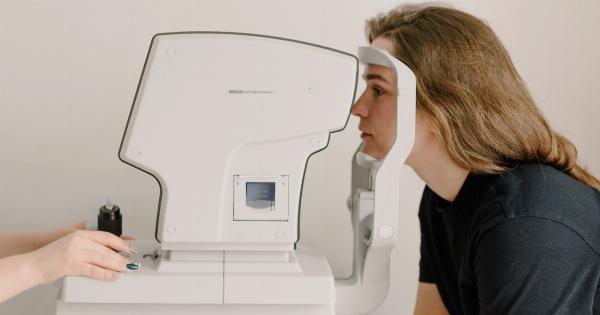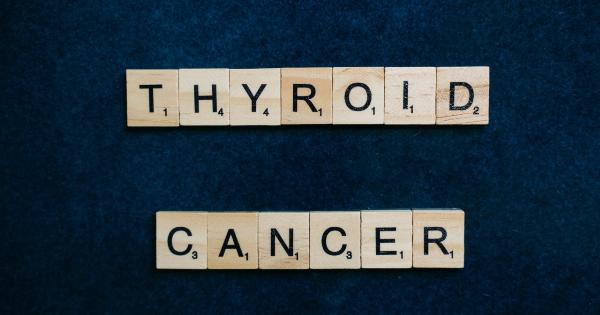Iodine is an essential trace mineral that plays a crucial role in the functioning of the body. It is primarily known for its role in thyroid hormone production, which is crucial for metabolism, growth, and development.
While iodine deficiency is rare in many developed countries due to the widespread use of iodized salt, it can still be a significant concern in certain regions and populations. This article will delve into the silent danger of iodine deficiency and provide insights into how to detect it.
What is Iodine and Why is it Important?
Iodine is a chemical element that is essential for the synthesis of thyroid hormones: triiodothyronine (T3) and thyroxine (T4). These hormones are responsible for regulating metabolism, body temperature, heart rate, and other vital functions.
Without adequate iodine, the thyroid gland cannot produce enough of these hormones, leading to a condition known as hypothyroidism.
The Prevalence of Iodine Deficiency
While iodine deficiency is rare in many countries, it is still a significant global health issue.
According to the World Health Organization (WHO), it affects approximately two billion people worldwide, with the highest prevalence in regions like Southeast Asia and sub-Saharan Africa. Pregnant women and infants are particularly vulnerable to the consequences of iodine deficiency.
Signs and Symptoms of Iodine Deficiency
Iodine deficiency often goes unnoticed due to its subtle symptoms. However, there are several signs that may indicate a deficiency:.
1. Fatigue and weakness.
2. Unexplained weight gain.
3. Dry skin and hair.
4. Muscle aches and cramps.
5. Hair loss.
6. Unusual sensitivity to cold temperatures.
7. Constipation.
8. Depression and mood swings.
9. Poor concentration and memory.
10. Swelling of the thyroid gland (goiter).
The Importance of Iodine during Pregnancy and Infancy
Iodine is crucial for proper brain development in the fetus and newborn. Severe iodine deficiency during pregnancy can lead to congenital hypothyroidism, a condition that can cause irreversible mental and physical impairments in the child.
It is, therefore, essential for expectant mothers to ensure they meet their iodine requirements through proper nutrition or supplementation.
How to Detect Iodine Deficiency
Detecting iodine deficiency can be challenging as its symptoms are often subtle and nonspecific. However, several methods can help determine if one is deficient in iodine:.
1. Urinary Iodine Level: Measuring iodine levels in the urine is the most common method to detect deficiency. A 24-hour urine collection is often recommended for accurate results.
2. Blood Tests: Blood tests can assess thyroid hormone levels and provide an indirect indication of iodine status. Elevated levels of thyroid-stimulating hormone (TSH) and decreased levels of T3 and T4 may suggest an iodine deficiency.
3. Goiter Examination: Physical examination of the thyroid gland can help identify goiter, which is often associated with iodine deficiency.
4. Iodine Skin Test: Applying iodine tincture to the skin and observing its absorption rate can offer insights into iodine sufficiency.
5. Breast Milk Iodine Content: In areas where breastfeeding is prevalent, measuring iodine levels in breast milk can help assess iodine status in lactating women.
Preventing and Treating Iodine Deficiency
Preventing and treating iodine deficiency involves ensuring an adequate intake of iodine. This can be accomplished through:.
1. Iodized Salt: The iodization of salt is one of the most successful public health interventions to prevent iodine deficiency. Using iodized salt in cooking and seasoning can help maintain sufficient iodine levels.
2. Dietary Sources: Incorporating iodine-rich foods into the diet is essential. Seafood, seaweed, dairy products, eggs, and fortified bread are good sources of iodine.
3. Supplements: In cases where iodine requirements cannot be met through diet alone, iodine supplements may be necessary. It is important to consult with a healthcare professional before starting any supplementation.
Conclusion
Iodine deficiency can have serious consequences on overall health, particularly during pregnancy and infancy.
While it may be a silent danger, detecting iodine deficiency is possible through various methods such as urinary iodine level testing and blood tests. By ensuring an adequate intake of iodine through diet, iodized salt, or supplementation, individuals can prevent and treat this deficiency, promoting optimal health and well-being.



























